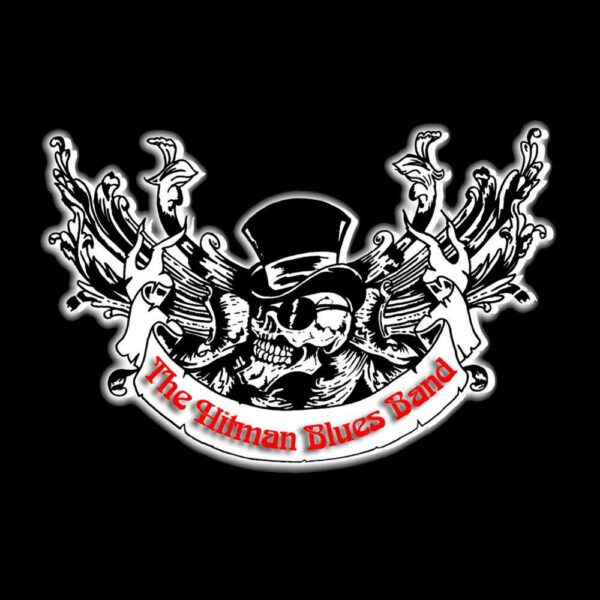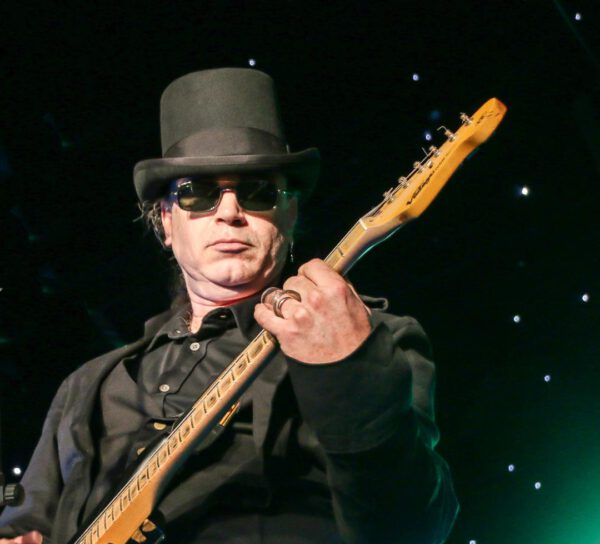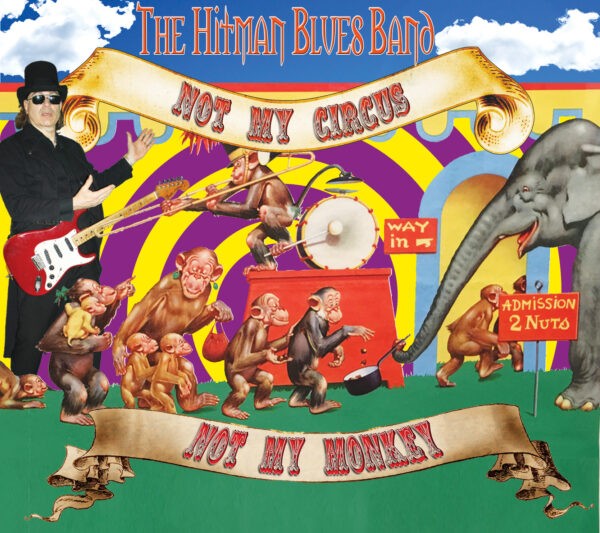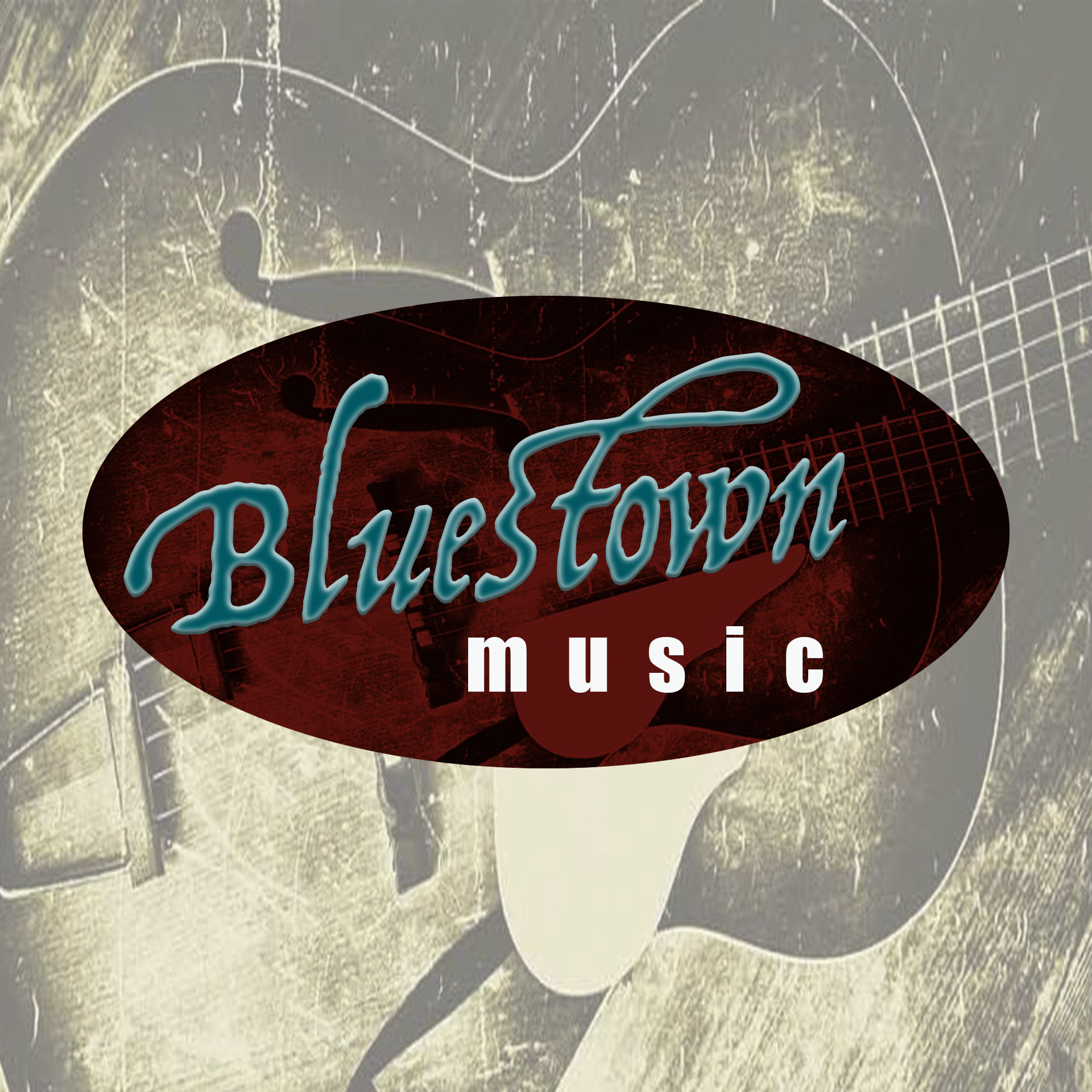Interview I The Hitman Blues Band

Interview I The Hitman Blues Band
Text: Gary Schwind
Hitman Blues Band is a band that specializes in modern blues much to the delight of audiences in both the U.S. and Europe. The band’s songs have been streamed more than half a million times on Spotify, and with the new album Not My Circus, Not my Monkey, it shows no signs of slowing down. By phone, frontman Russell Alexander discussed what drew him to the blues, the new album, and itching to return to touring.
Gary Schwind: What drew you to playing the blues?
Russel Alexander: I’ve been a musician my whole life. My dad was a jazz musician. He played with a lot of the greats. I started playing professionally when I was about 16. Eventually I realized that the music that appealed to me the most long-term was the blues. Like most people do, I played a lot of covers, really immersing myself in the various styles of the blues. I’ve always been writing original tunes, and I started writing in that style. It came out the way that it comes out.
GS: Are there any particular artists you were first drawn to?
RA: Oddly enough, Elvis. The early Sun sessions. Hearing what he was doing set me up for listening to blues artists like Muddy Waters, Big Bill Broonzy, going back to guys like Charley Patton, Lonnie Johnson and those guys, and then all the way back to Blind Willie Johnson. These are guys with various fingerpicking styles. At one point, I was hired to learn all the Cream Clapton solos. Hearing what he had come from and how he expanded the styles. It was a pretty big eye-opener for me. That also influenced the way I was looking at it. This is also coming from a rock and jazz background with all the jazz songs since my dad was a jazz musician.
GS: Speaking of jazz, did you hear about Chick Corea?
RA: I heard about it. It’s so awful, and so sudden. They said it was a rare form of cancer that was just recently discovered. No warning. Last year was pretty rough. I’m hoping this year won’t be a repeat. We’re going to be dealing with things like this as people get older. The thing is, I don’t see a lot of guitar heroes coming to fill that spot. Do you?
GS: No. For a long time in the blues, there’s been Jonny Lang and Kenny Wayne Shepherd. I don’t know who might be coming after them.
RA: They never really reached the public acceptance of Jimmy Page or Jimi Hendrix or Stevie Ray Vaughan. Most people, you say Jonny Lang and Kenny Wayne Shepherd, they’ll be like, “Who?” They’re not kids anymore. It’s encouraging that live music is getting pushed by a a lot of artists who some years ago were more concerned with sequenced tracks. I see more live music being promoted. Maybe it’s just the circles I run in.
GS: You have a new album coming out next month. How is it different than previous albums you’ve recorded?
RA: We play what we call modern blues. It’s a combination of blues, jazz, and rock, but it’s all blues-based. I gave copies to a few people. What I’ve gotten is that it’s just been brought to a whole new level. It’s still blues, but it’s a whole different level than what we’ve done before. Honestly, I’m not really sure what they’re talking about, but OK. Almost everything that I write is based on my own life. If they like it, that’s good. Have you heard the album?
GS: Yes.
RA: Did anything stand out to you?
GS: The first track. And the version of “John the Revelator”.
RA: “John the Revelator” has been done so many times. They always stick to the same lyrics and the same general song. I was thinking what if John was sitting there in his cave writing the Book of Revelations and all the other gods just popped in and gave their own version of what the end of times is going to be like? So I wrote the lyrics like that. I had Buddha come by, and Odin, and Brahma. I like the way it came out.
GS: You have done pretty well in Europe. What’s the difference between performing in Europe and performing in the U.S.?
RA: Generally I’ve found that people that come to see us are less genre-specific. They’re the kind of people who will go out and see a blues band one night, a heavy metal band another night. They just like good music and music that’s performed well. Here, it’s “You’re not a real heavy metal guy, you poseur!” You’re always going to have people that are experts in a particular genre. They’re like “You’re not really blues. You’re not really rock.” One comment that we get a lot is “I don’t really like the blues, but I like what you guys do.” What we’re doing is the blues. I’m glad you like it.
GS: We do get a little particular here.
RA: The way I look at it is, as long as they listen to it. If they’re going to hear it, then they can decide if they like it or not. If they want to say, “I like it, but it’s not…” that’s OK. As long as you like it. I always remember that Dylan came out and did his electric set at the Newport Folk Festival, and he was booed off the stage. Did it stop him? No. If some people don’t like it, then they don’t like it. What are you gonna do?
GS: What would you be doing if you weren’t making music?
RA: I don’t know. Assault? (laughs) I like computers. I’m a bona fide computer expert. I’ve always done that as a hobby, and I enjoy it. The mind is set up for that the same way that it’s set up for music. You follow the same kind of paths of things. I’d probably be a full-time computer guy, spending my time in the basement and having the same kind of skin I have now because I have a nightclub tan. Everything would be the same, but I’d probably weight a lot more. Twinkies and Jolt, man.
We were supposed to fly to France last August and the UK in November, and that got canceled. Hopefully we’ll be able to go this year. The dates from November have been pushed to November of this year. As far as France is concerned, it’s hard to make any plans.
GS: I bet you’re itching to get back on the road.
RA: I love playing out. I would love to play more in the United States, but it’s a big band. It’s nine pieces. It’s hard to get routing on that unless people already know your stuff and you have the advance ticket sales that can cover that. We’re trying. We’re pushing. We’re following everything we can. These days it’s a lot different. You’ve got Spotify, Deezer, Apple, and eight million blogs. It’s a bit overwhelming. We had half a million streams on the last album, which shocked the hell out of me. My sax player told me we had more than half a million streams, which is not quite enough to pay for pressing 1,000 CDs, but it’s a brave new world where you can get tons of people hearing your music, but not actually get any money for it. We do it for love.
When the internet was first starting, I used to think it’s be great if you could just put your music out and people all over the world could hear it and be able to listen to it right away. Now we’ve got 10,000 new songs a day. You gotta be careful what you wish for. It’s a lot of pros and cons. It must make your job a nightmare. You must be inundated.

GS: It’s a bit difficult when you get a lot of music and you want to pay some attention to it, but you just don’t have time.
RA: A journalist friend of mine gave me the CDs she received for one month. It had been a couple years previously. Forget it, man. You have my respect. I did it that one time, and I was absolutely fried. It got to the point where I would go, “Shit! Next!” Some of it was good and you could tell right away it was good. But some of it was shit right from the jump. Then I felt bad because I could get shit, but I’m not really giving it a chance, am I?
When I was younger, I used to teach guitar privately. I had a student who had an acoustic guitar. He had made a deal with his parents. If he took lessons for six months, they would buy him an electric guitar. I taught this kid. He took the lessons for six months. He told his parents he had fulfilled his end, and they bought him an electric guitar. He stopped taking lessons from me. He went on to form a band, and he went on to write a paragraph about the whole situation about me in his autobiography. His name is Ian Scott from Anthrax. Had he stayed with me, what probably would have happened, he would have said, “I’ve got this band.” And he would have played it for me. I would have said, “That sounds like shit. You guys should do something else.” That would have been the end of that. Sometimes you listen to something and decide it’s shit. That could be the next seminal band.
Not My Circus, Not My Monkey will be released on March 15. For more information about the album and the band, visit hitmanbluesband.com
Gary Schwind is a longtime music journalist whose musical tastes range from blues and soul to rock and reggae. He has interviewed artists such as Bettye Lavette, Bobby Rush, and Billy Joe Shaver, among many others. His reviews can regularly be found on Glide Magazine and Americana Highways. He lives in southern California with his wife and two sons.

